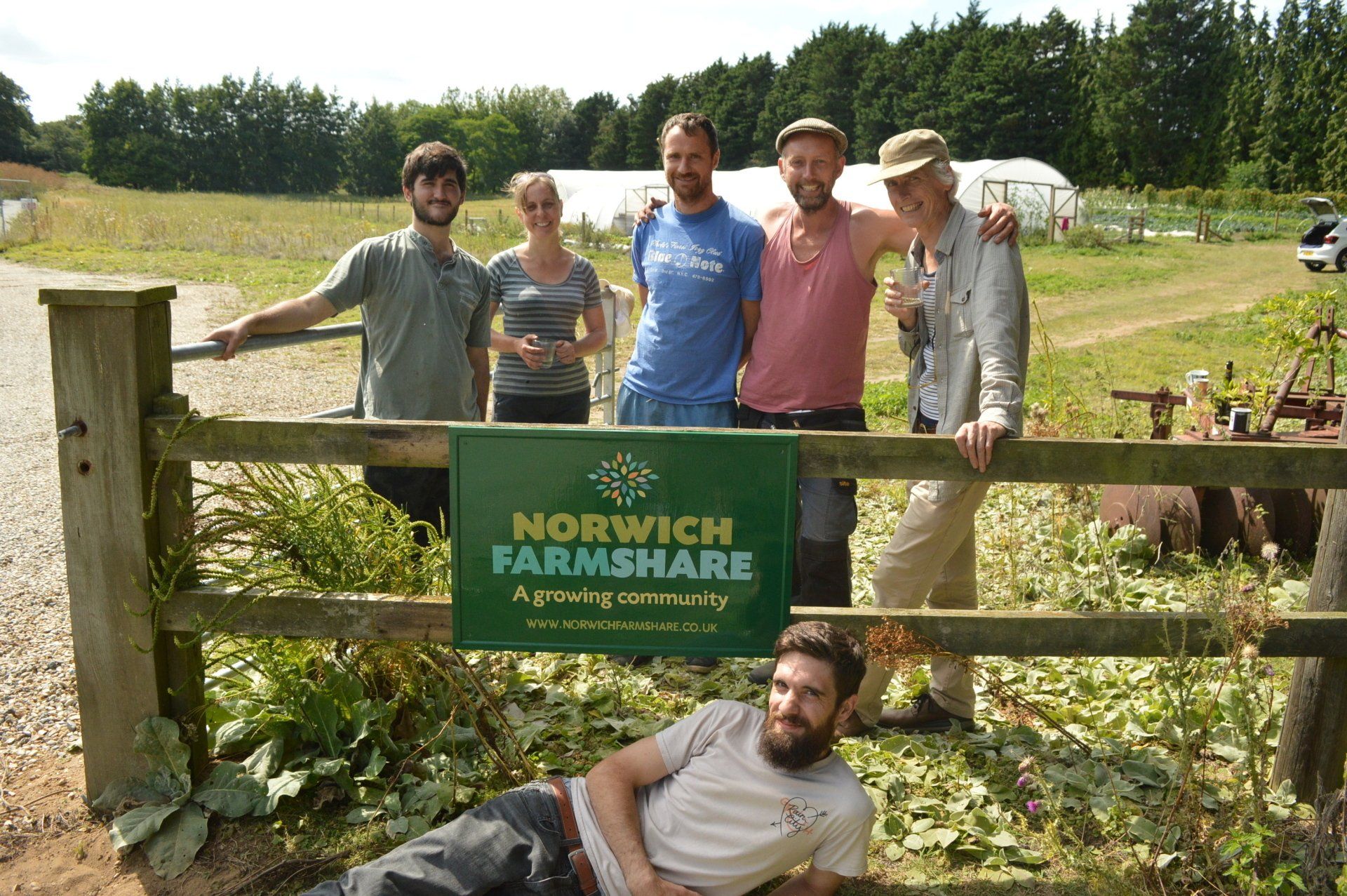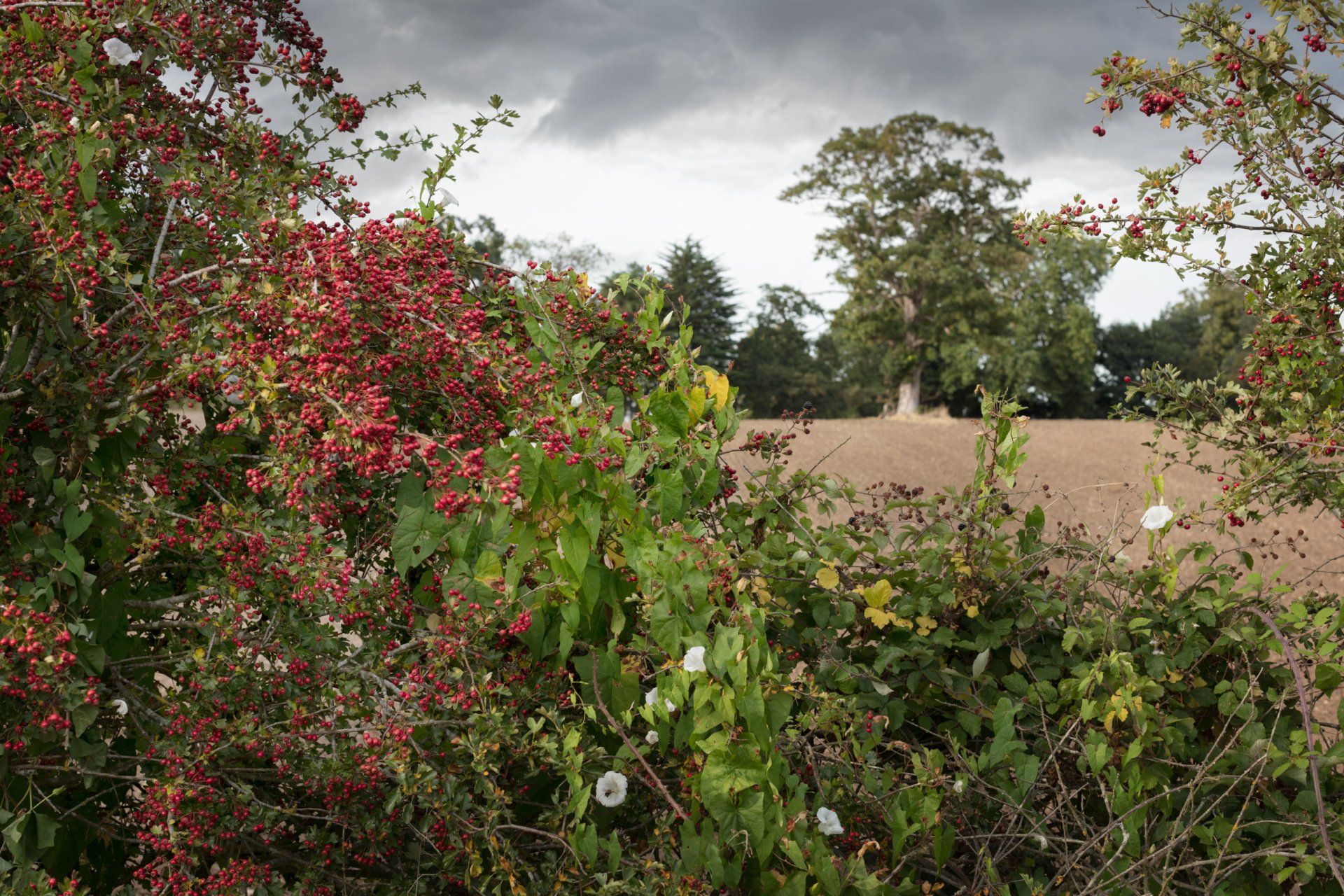Urban Greening - Norwich Farmshare
Urban Greening -
Norwich Farmshare
Growing food within an urban setting is not just for those lucky enough to have an allotment. Organisations like Norwich Farm Share are proving that large-scale growing can happen within the busiest of settings.
Their delicious chemical-free produce is distributed by electric bike to over 100 people across the city, and is grown by a huge team of volunteers.

Norwich Farmshare was set up to grow food for local people in and around Norwich just over ten years ago. It was part of a growing movement of people experimenting with solutions to the climate crisis (and perhaps less explicitly the crises in biodiversity, water quality, mental health, access to land).
The most important values were to produce healthy food without synthetic chemicals, short supply chains and very strong links between the growers, the land, the people who would be eating the food and also the wider community. There was also a strong emphasis on providing education about growing food and building a strong community around food growing and having a connection to land and nature. It is a Community Supported Agriculture farm of which there are now thousands around the world.

The rewards and challenges of running a small, profitable market garden with lots of community input are finely balanced, both the benefits and the problems acutely present all the time. Some of our members joined when NFS first started and have been involved ever since, providing much needed continuity and support. Hundreds of people have helped out as volunteers, contributing their skills and labour but also learning about the complex process of growing food for sale.
We are now beginning to set up micro gardens around the city where we can use our growing techniques on a small scale to bring food growing into parts of the community where people might not be able to access our market garden in Trowse. We see and hear from talking to volunteers, a huge value in being able to come to an outdoors space, socialise with other people and contribute to a meaningful activity.
We’re not only growing very healthy and tasty food for over 100 households, we are also demonstrating how land can be managed in a holistic way to look after biodiversity, the water cycle, the mineral cycle and increase the amount of carbon being sequestered in the soil by maximising photosynthesis and looking after the living biology in the soil. his gives the growers and the volunteers and our veg bag subscribers a tremendous sense of satisfaction.
There is also great emphasis on the way that food production can stimulate a rich social undercurrent. While industrial farming can be synonymous with solitary farmers alone in a tractor, surrounded by thousands of acres of farmland with no other farms for miles around, our CSA farm has a very different ethos.
Our volunteer days are characterised by coffee breaks with lots of home made cake, before covid we used to have an annual Celidh, we welcome all ages and abilities to our work days and we send out a weekly newsletter to all our subscribers and supporters to keep them in touch with what is happening on the farm. I think for many people it would be hard to say which one of these many benefits most attracts them to be involved with Norwich FarmShare.

We’re not naïve about the benefits that more mechanised farming has brought to humanity. The ease of access to diverse food choices, the tools that allow us to avoid back-breaking, labour intensive work and the ability of a few people to harvest large volumes of food with a massively reduced workforce are not things we take for granted.
Certain arable crops certainly lend themselves to a larger scale more mechanised type of farming. The context is critical and in contrast to arable farming, there is a lot of evidence that small scale horticultural holdings can be very productive, be relatively cheap to set up because of the simpler tools and infrastructure they use and can address many socio-economic problems because of the great benefits that result from the physical, wholesome, outdoor work that is involved.
We also know that industrial farming has played a huge part in degrading our soils, destroying important wildlife habitat, killing many species directly through toxic chemicals or shooting or trapping and contributing to millions of food miles every year as the connection to how our food is grown is lost and people expect all types of foods all through the year no matter where they’re from or how much energy is used to grow them.
Regenerative agriculture, which is the set of principles that
Norwich FarmShare
subscribes to, involved creating and nurturing life rather than diminishing it. While industrial farming techniques can pulverise and sterilise soil, our main priority is to disturb soil as little as possible and encourage as much biology in the soil as possible. We want to work with nature so that our market garden is somewhere that nature is in balance and crops are in full health so we don’t need to add chemicals which pollute waterways. Increasing organic matter in the soil increases water retention (thereby reducing the need for irrigation and preventing flooding), increases fertility and stores more carbon in the soil.

There is also huge potential for innovative farming techniques to be brought into cities. Urban farming is unlikely to make much impact on food security and climate change this depends on the city in question – in terms of how much vacant land is available and how imaginative the city planners are. There is huge scope for rooftop gardens, vertical farming solutions and making use of thousands of micro patches of land in cities and on their outskirts.
The most significant impact this change in land use would have is to awaken people’s understanding of food and its impact on health and well-being. This leads to a change in demand for more local, fresher food. Cities with more trees, flowers, bees and butterflies become more pleasant places to live and are living classrooms for young people.
Norwich FarmShare has existed for just over ten years and it's been a roller coaster journey. The elation of growing delicious food so locally and being part of a fun and passionate community have existed alongside the realities of seeing growers get burnt out and give up on horticulture as a career. We have not had secure access to land and have had to leave the previous site and all the hard work that went into it. We still don’t have a secure tenancy and are constantly at the mercy of market forces if some other land use becomes more attractive to our landlord.
The extremely low profit margins of growing food for our community, many of whom are on low income, means it takes a long time to save enough money to invest in better infrastructure, tools and training. While many other industries can count on huge subsidies from the government we need relatively small and targeted grants to assist us in getting established and installing the infrastructure (polytunnels, covered wash and pack stations, storage space, walk in coolers) and getting the training to enable us to focus on growing food in a comfortable and efficient way.
Considering the huge benefits that argoecological CSA’s offer our communities it would seem a no-brainer to offer them a helping hand. We need the local, regional and national decision makers to become familiar with how we operate so they understand what we need and also to be creative about the solutions they support. There is so much passion and so many proven ideas that could be solving many of our most complex or ‘wicked’ problems. It just requires some political will and courage to harness them.
WildEast Blog

Powered by LocaliQ
Follow Us
SIGN UP FOR NEWS & UPDATES
Newsletter Sign Up
Thank you for signing up to our newsletter.
Please try again later.
Privacy / Terms & Conditions / Sitemap
